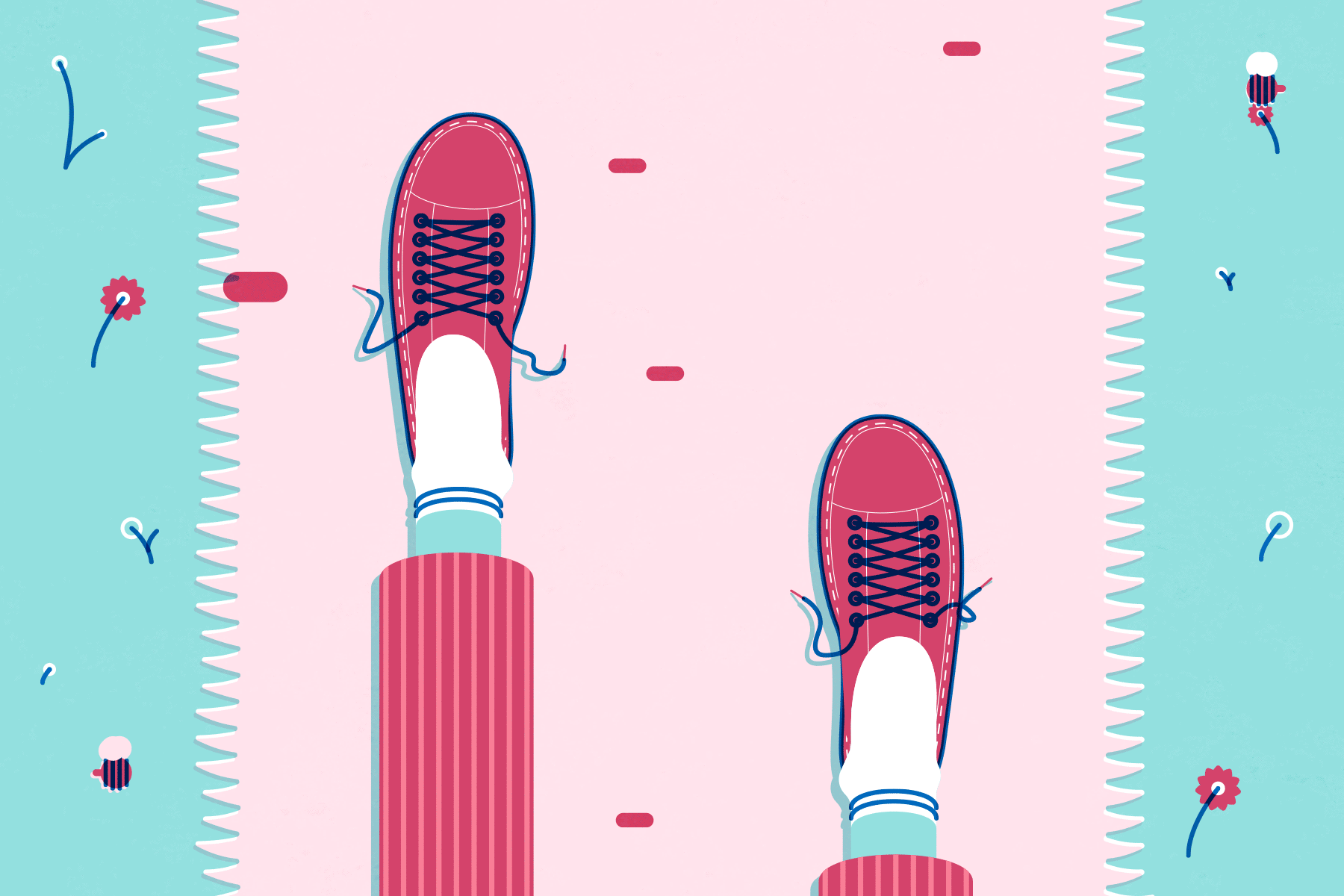
- Home |
- Search Results |
- The secret to a meaningful life? Going for a walk
The secret to a meaningful life? Going for a walk
In this essay from bestseller Four Thousand Weeks, author Oliver Burkeman explores the transformative power of leaving behind a “project-driven” life for one in which the activity – walking, listening to a favourite song, or chatting with friends – is an end in itself.
It’s just after half past seven on a rainy morning in midsummer when I park my car beside the road, zip up my waterproof jacket, and set off by foot into the high moors of the northern Yorkshire Dales. There’s a splendour to this terrain that’s most powerful when you’re alone, and in no danger of being distracted from the barren drama of it all by pleasant conversation. So I’m happy to be solo as I head uphill, past a waterfall with a satisfyingly Satanic name – Hell Gill Force – and into open country, where the crunch of my walking boots sends startled pheasants airborne from their hiding places in the heather.
A mile or so farther on, far from any road, I stumble on a tiny disused stone church with an unlocked door. The silence inside feels settled, as if it hasn’t been disturbed in years, though in fact there were probably hikers here as recently as yesterday evening. Twenty minutes later, and I’m on the moor top, facing into the wind, savouring the bleakness I’ve always loved. I know there are people who’d prefer to be relaxing on a Caribbean beach, instead of getting drenched while trudging through gorse bushes under a glowering sky; but I’m not going to pretend I understand them.
'There is no more to going for a walk than what you are doing right now.'
In other words, he was suffering from the very problem we’re exploring: when your relationship with time is almost entirely instrumental, the present moment starts to lose its meaning. And it makes sense that this feeling might strike in the form of a midlife crisis, because midlife is when many of us first become consciously aware that mortality is approaching – and mortality makes it impossible to ignore the absurdity of living solely for the future. Where’s the logic in constantly postponing fulfilment until some later point in time when soon enough you won’t have any “later” left?
The most unsparingly pessimistic of philosophers, Arthur Schopenhauer, seems to have seen the emptiness of this sort of “project-driven life” as an unavoidable result of how human desire functions. We spend our days pursuing various accomplishments that we desire to achieve; and yet in the case of any given accomplishment – attaining tenure at your university, say – it’s always the case either that you haven’t achieved it yet (so you’re dissatisfied, because you don’t yet have what you desire) or that you’ve already attained it (so you’re dissatisfied, because you no longer have it as something to strive toward). As Schopenhauer puts it in his masterwork, The World as Will and Idea, it’s therefore inherently painful for humans to have “objects of willing” – things you want to do, or to have, in life – because not yet having them is bad, but getting them is arguably even worse: “If, on the other hand, [the human animal] lacks objects of willing, because it is at once deprived of them again by too easy a satisfaction, a fearful emptiness and boredom comes over it; in other words, its being and its existence become an intolerable burden for it. Hence it swings like a pendulum to and fro between pain and boredom.”
But the notion of the atelic activity suggests there’s an alternative that Schopenhauer might have missed, one that hints at a partial solution to the problem of an overly instrumentalized life. We might seek to incorporate into our daily lives more things we do for their own sake alone – to spend some of our time, in other words, on activities in which the only thing we’re trying to get from them is the doing itself.
This is an extract from Oliver Burkeman’s Four Thousand Weeks.
Image: Flynn Shore/Penguin